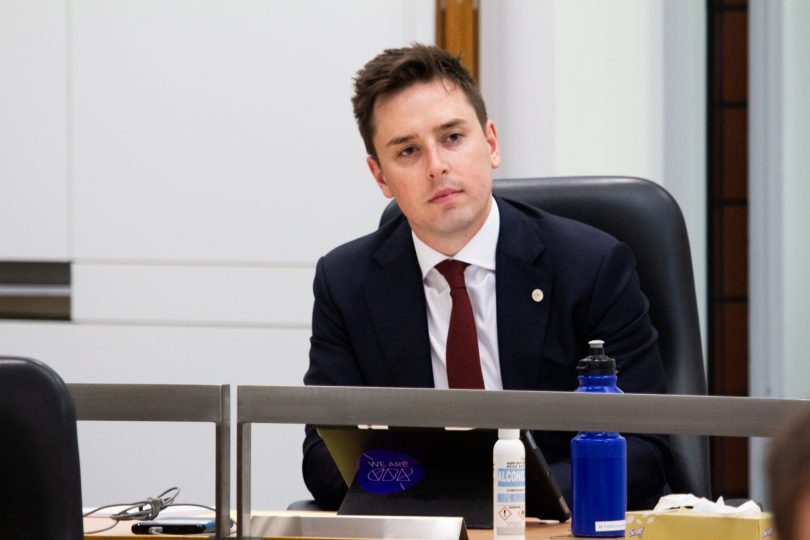
Hospitality is one industry where the workforce is increasingly casualised. Photo: File.
The ACT Government will investigate how sick leave and carer’s leave could be provided to the Territory’s casual workforce who, under current arrangements, cannot access this leave.
Labor backbencher Michael Pettersson, who raised the motion in the ACT Legislative Assembly on Tuesday (3 May), was clear that it is just a proposal at this stage, although he believed it would be simple enough to implement.
It would come at a cost, Mr Pettersson estimated, of around $7.5 million a year to the ACT Government, but he said there was a public health incentive to ensure people did not attend work when they are sick – whether with COVID-19, the flu or any other illness.
“We’ve all had experiences with a colleague rocking up with a sniffle and then two days later the entire workplace is sick … and there should be a consideration of workers’ wellbeing.”
Mr Pettersson said casual workers are already doing it tough, particularly as the country grappled with an increasing cost of living.
“We know that casual workers work really hard, often with insecure hours and for low wages. We’ve seen through the pandemic the consequences of workers feeling compelled to go to work when they are sick,” he said.

Labor backbencher Michael Pettersson said casual workers were doing it tough. Photo: Region Media.
Mr Pettersson said he did not believe it was a “radical idea” as both the Commonwealth and local governments had been paying casual workers’ sick pay during the pandemic if they were required to isolate.
He suggested a similar scheme and similar systems could be employed now.
“I don’t have all of the finer details at this point, but I think the government can find a scheme that works for the ACT.”

Graham Catt said the proposal would increase the burden on business. Photo: Supplied.
But it’s already raised some concerns for Canberra’s business community.
CEO of the Canberra Business Chamber Graham Catt worried about the impact of increased regulation on businesses, particularly small businesses, in an already uncertain economy.
“It’s an environment where businesses are already facing uncertainty and rising costs which they are trying not to pass on to consumers. They are also struggling to find the people and skills they need,” he explained.
“It would be surprising in this environment that we’d be moving to increase the burden on businesses in the form of new regulation.”
Mr Catt also pointed out that casual workers are paid loadings which effectively works out to be in lieu of entitlements like annual leave, sick leave and carer’s leave.
“Secondly, the premise behind casual employment is that it’s there to provide flexibility for businesses and employees,” he said.
“It suits the needs of employees … and in many cases, they really have come to an arrangement that suits both employer and employee.”
But Mr Pettersson said this was simply not the case and casual workers were extremely vulnerable.
He highlighted the Victorian Sick Pay Guarantee trial as an example the Territory could follow. The state government is fully paying for the trial.
Under the scheme, casual and contract workers in certain industries and occupations can receive five days a year of sick and carer’s pay at the national minimum wage.
Although Mr Pettersson has not specified what industries could be included in a local scheme, he noted retail and hospitality which have a highly casualised workforce.
He suggested these details would be fleshed out during a consultation and inquiry process.

Opposition spokesperson for Jobs and Workplace Affairs Peter Cain said businesses were keen to get back to business in the ‘new normal’. Photo: Facebook.
The Opposition supported the premise of Mr Pettersson’s motion but instead called for a full committee inquiry to be undertaken, rather than an internal process, which was supported.
“The Canberra Liberals do not oppose looking at the area of casual rates and the entitlements that accompany that, but I think a full and open inquiry by a Committee would be fair to the whole community,” Opposition spokesperson for Jobs and Workplace Affairs Peter Cain said.
“Coming out of COVID-19, [businesses] just want to get back to whatever the new normal is without a major change in what regulates them.”

















